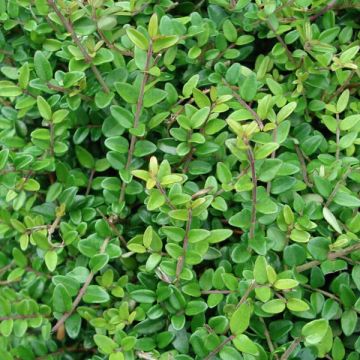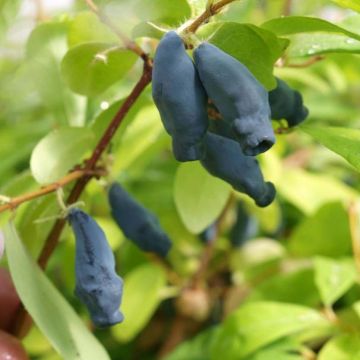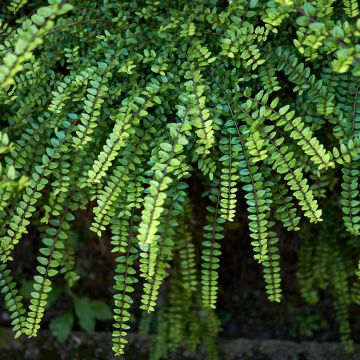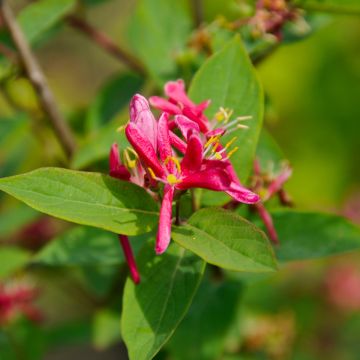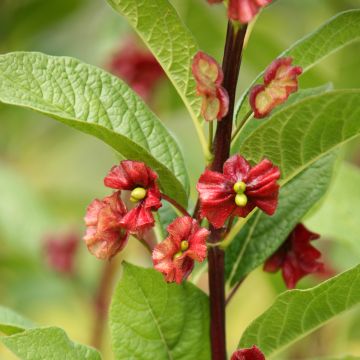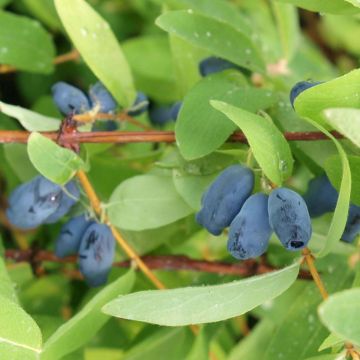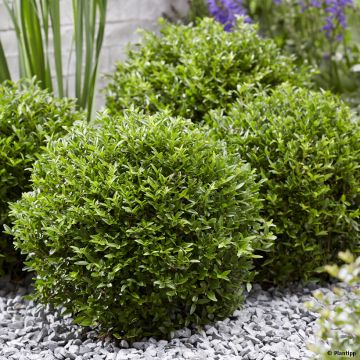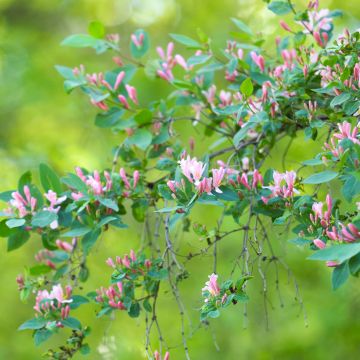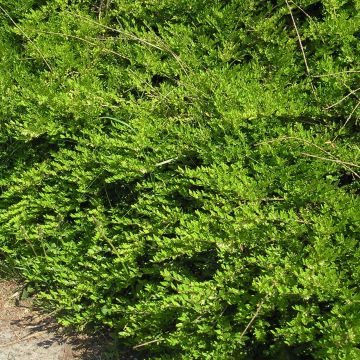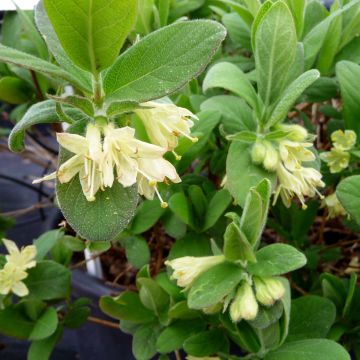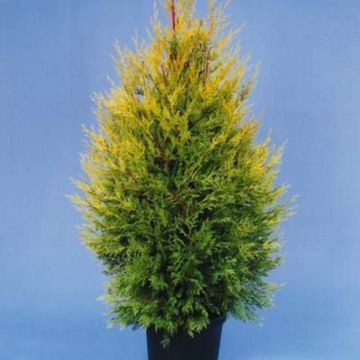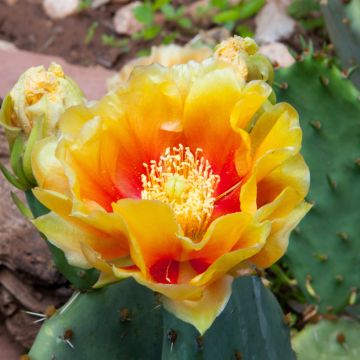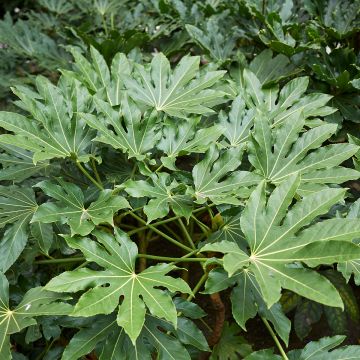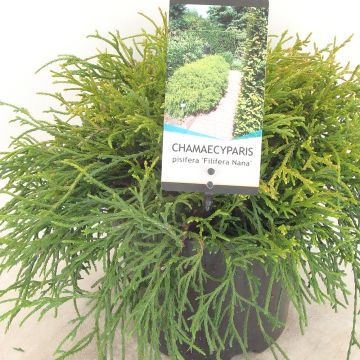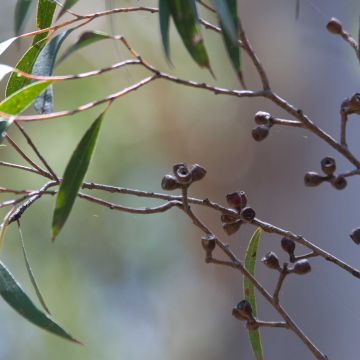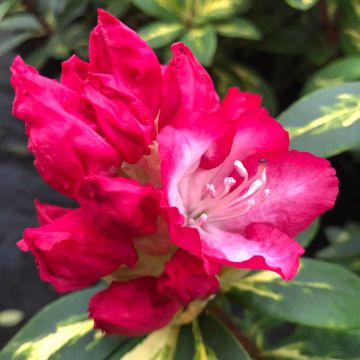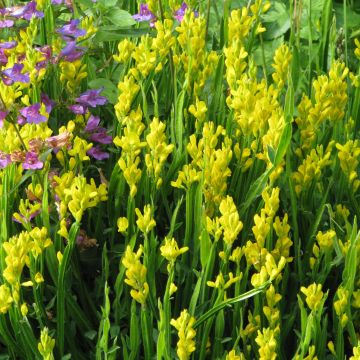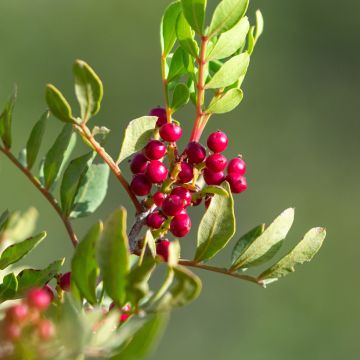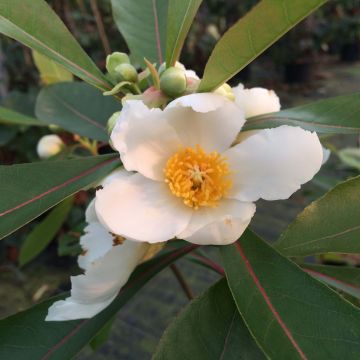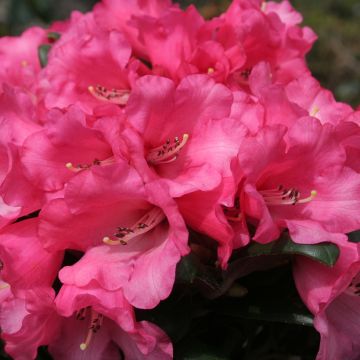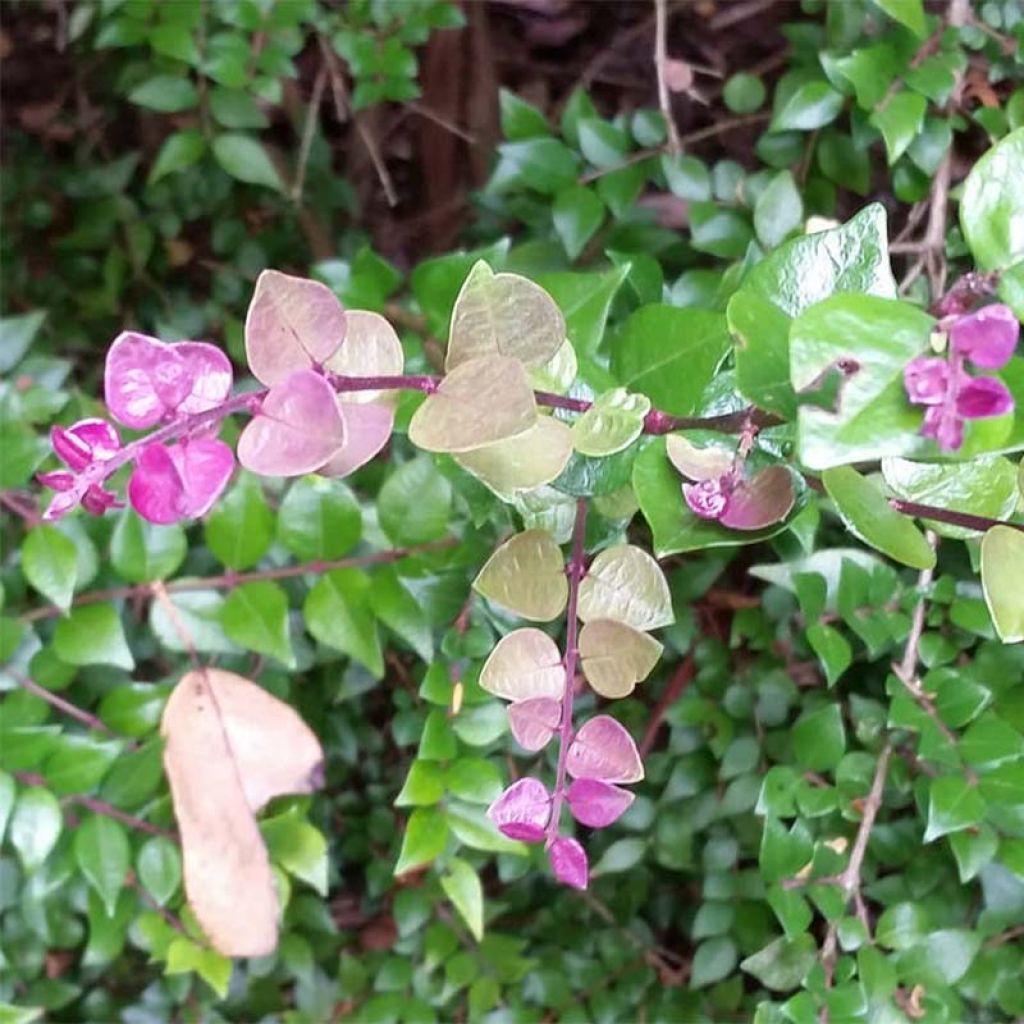

Lonicera nitida Red Tips - Box Honeysuckle
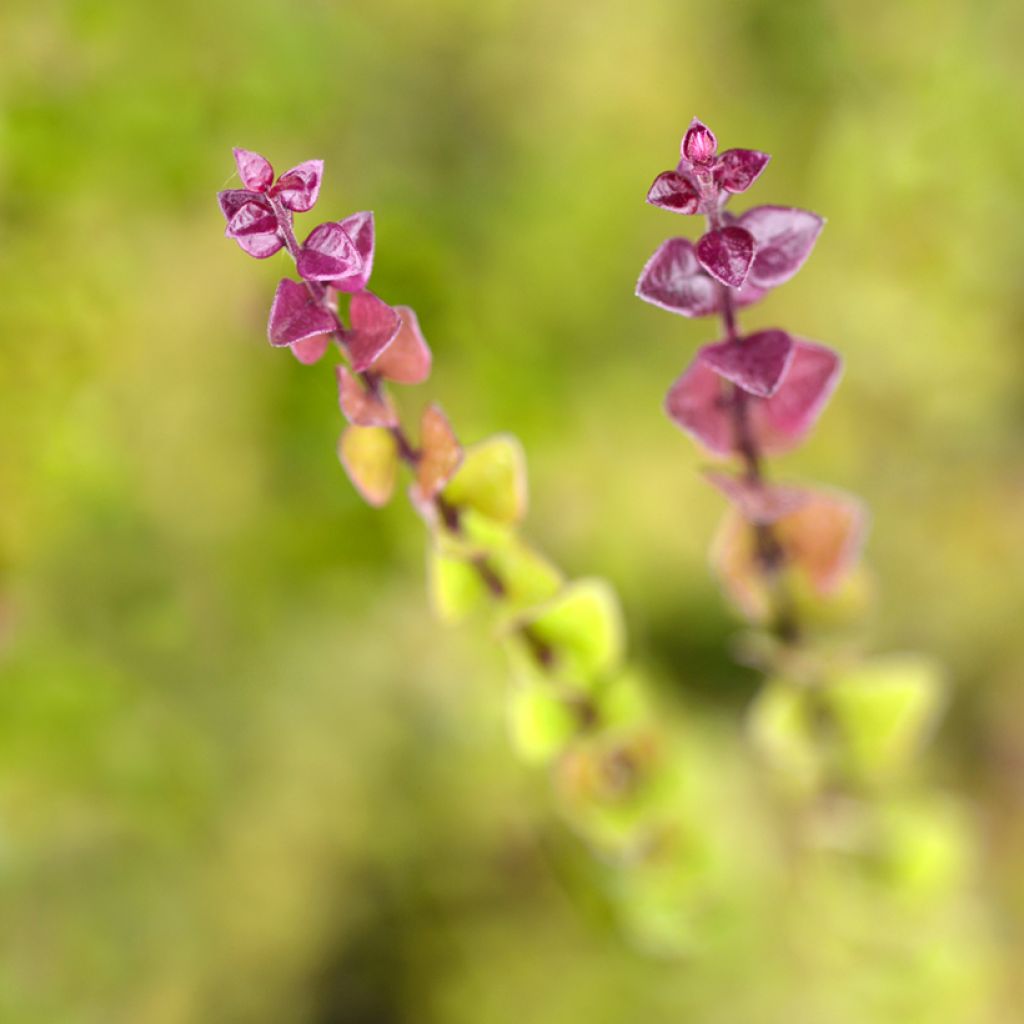

Lonicera nitida Red Tips - Box Honeysuckle
Lonicera nitida Red Tips - Box Honeysuckle
Lonicera nitida Red Tips ®
Box Honeysuckle, Wilson's Honeysuckle, Boxwood Honeysuckle, Boxleaf Honeysuckle
This item cannot be shipped to the selected country
Delivery charge from €5.90
Delivery to Corse prohibited
More information
Schedule delivery date,
and select date in basket
This plant carries a 24 months recovery warranty
More information
We guarantee the quality of our plants for a full growing cycle, and will replace at our expense any plant that fails to recover under normal climatic and planting conditions.
From €5.90 for pickup delivery and €6.90 for home delivery
Express home delivery from €8.90.
Delivery to Corse prohibited: UE law prohibits the import of this plant from mainland France to Corse as part of the fight against Xylella fastidiosa. Please accept our sincere apologies.
More information

Does this plant fit my garden?
Set up your Plantfit profile →
Description
Lonicera nitida Red Tips is a new variety of Boxleaf Honeysuckle with a more spreading habit than the standard type, featuring splendid young shoots that are red to purple in spring. The red colour of the small leaves fades to shiny green in summer, and the foliage then takes on bronze shades in autumn due to the cold. This evergreen shrub is easy to grow and responds well to pruning. More compact than the standard species, it is ideal for creating topiary or low hedges as an alternative to boxwood. It has faster growth, more colourful foliage, and proves to be more disease resistant.
The Red Tips Honeysuckle belongs to the Caprifoliaceae family. Its parent, Lonicer nitida, is a robust evergreen shrub native to the Chinese provinces of Yunnan and Sichuan. Red Tips is very easy to grow and hardy. It reaches an average height of 1.25 meters (4 feet 1 inches), but can grow up to 1.5 meters (4 feet 11 inches) if regularly pruned, even taller if left to grow freely. Its growth is quite fast, but it generally only requires pruning once per year depending on its growing conditions. The Red Tips Boxleaf Honeysuckle has a naturally dense and bushy habit, carried by fine and slightly arched branches. Its small, shiny, evergreen leaves are reddish-purple when they first emerge, green in summer, and more or less bronzed in autumn and winter. If left unpruned, it produces small, inconspicuous cream-white flowers in spring. The small purple fruits, toxic but appreciated by birds, are rarely seen in cultivation and only develop if the plant is not pruned.
Plant Lonicera nitida Red Tips in any well-drained soil that is not too dry, even chalky soil. It prefers partial shade or light sun. Primarily a foliage plant, Boxleaf Honeysuckle tolerates severe pruning which should be carried out just after winter or after flowering. Allow 50 to 70 cm (19.7 to 27.6 in) of space between plants for hedge planting. This shrub is resistant to air pollution and also tolerates moderate drought once established. It is perfect for low hedges, large borders, or beautiful plant sculptures, trimmed into balls or pyramid shapes, both in the ground and in pots. This Boxleaf Honeysuckle can also be left to grow freely in woodland areas.
Report an error about the product description
Lonicera nitida Red Tips - Box Honeysuckle in pictures
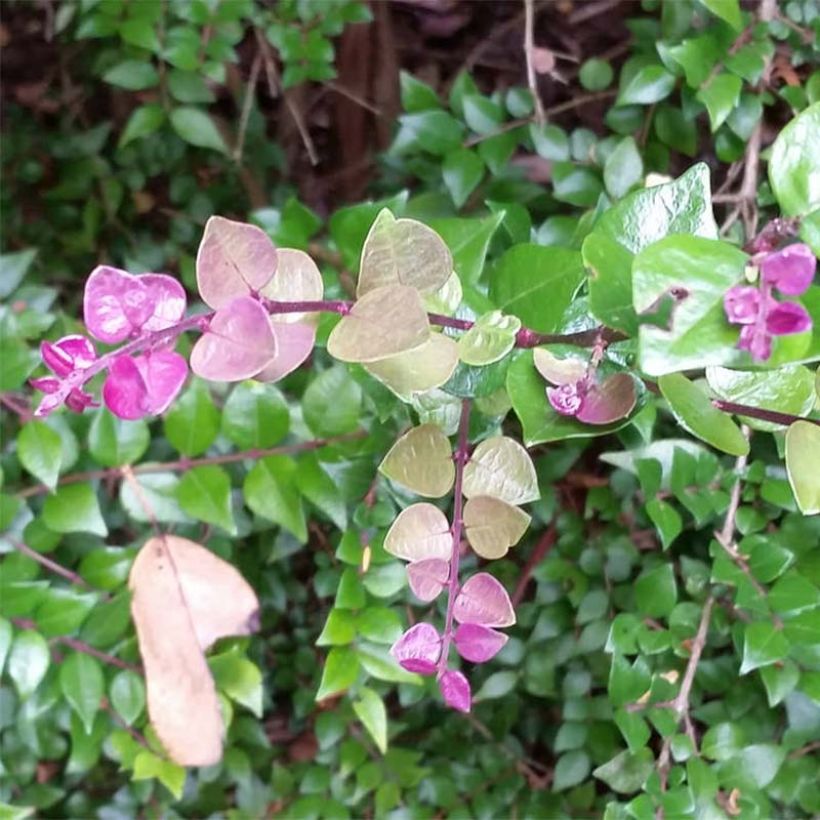

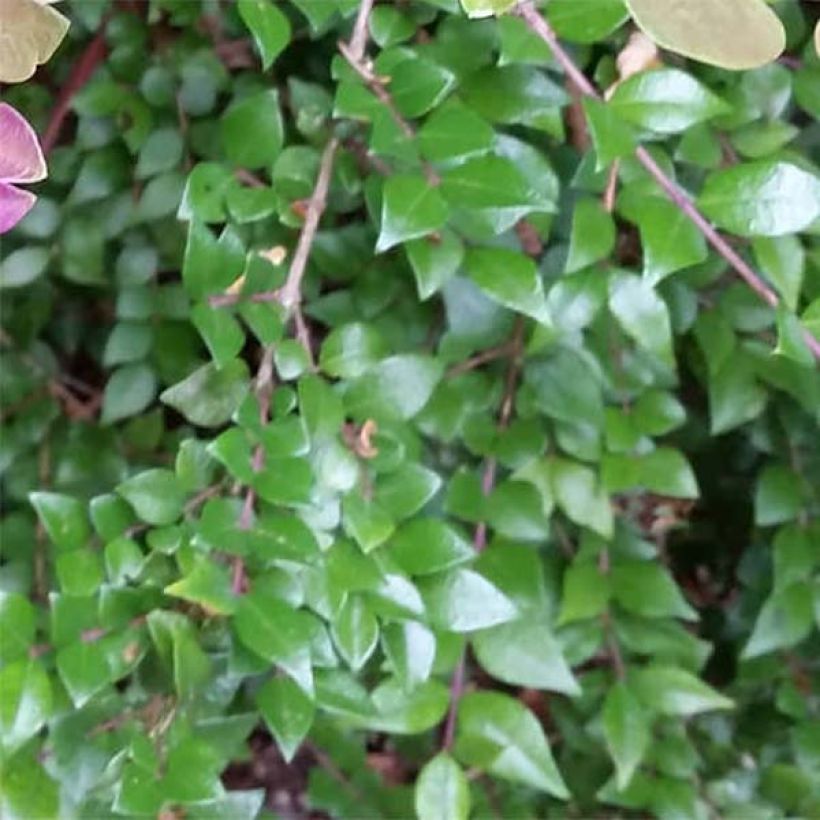

Plant habit
Flowering
Foliage
Botanical data
Lonicera
nitida
Red Tips ®
Caprifoliaceae
Box Honeysuckle, Wilson's Honeysuckle, Boxwood Honeysuckle, Boxleaf Honeysuckle
Cultivar or hybrid
Other Honeysuckle
Planting and care
Plant Lonicera nitida Red Tips in partial shade or light sun, in a firm, well-drained, deep soil, even limestone. The plant also grows in shade, but its foliage will be less colourful. Allow 50 to 70 cm (19.7 to 27.6 in) space between the plants when planting as a hedge. To keep it neat and compact, prune your hedge once or twice a year. Lonicera nitida is resistant to atmospheric pollution and also withstands moderate drought once established.
Planting period
Intended location
Care
-
, onOrder confirmed
Reply from on Promesse de fleurs
Evergreen shrubs
Haven't found what you were looking for?
Hardiness is the lowest winter temperature a plant can endure without suffering serious damage or even dying. However, hardiness is affected by location (a sheltered area, such as a patio), protection (winter cover) and soil type (hardiness is improved by well-drained soil).

Photo Sharing Terms & Conditions
In order to encourage gardeners to interact and share their experiences, Promesse de fleurs offers various media enabling content to be uploaded onto its Site - in particular via the ‘Photo sharing’ module.
The User agrees to refrain from:
- Posting any content that is illegal, prejudicial, insulting, racist, inciteful to hatred, revisionist, contrary to public decency, that infringes on privacy or on the privacy rights of third parties, in particular the publicity rights of persons and goods, intellectual property rights, or the right to privacy.
- Submitting content on behalf of a third party;
- Impersonate the identity of a third party and/or publish any personal information about a third party;
In general, the User undertakes to refrain from any unethical behaviour.
All Content (in particular text, comments, files, images, photos, videos, creative works, etc.), which may be subject to property or intellectual property rights, image or other private rights, shall remain the property of the User, subject to the limited rights granted by the terms of the licence granted by Promesse de fleurs as stated below. Users are at liberty to publish or not to publish such Content on the Site, notably via the ‘Photo Sharing’ facility, and accept that this Content shall be made public and freely accessible, notably on the Internet.
Users further acknowledge, undertake to have ,and guarantee that they hold all necessary rights and permissions to publish such material on the Site, in particular with regard to the legislation in force pertaining to any privacy, property, intellectual property, image, or contractual rights, or rights of any other nature. By publishing such Content on the Site, Users acknowledge accepting full liability as publishers of the Content within the meaning of the law, and grant Promesse de fleurs, free of charge, an inclusive, worldwide licence for the said Content for the entire duration of its publication, including all reproduction, representation, up/downloading, displaying, performing, transmission, and storage rights.
Users also grant permission for their name to be linked to the Content and accept that this link may not always be made available.
By engaging in posting material, Users consent to their Content becoming automatically accessible on the Internet, in particular on other sites and/or blogs and/or web pages of the Promesse de fleurs site, including in particular social pages and the Promesse de fleurs catalogue.
Users may secure the removal of entrusted content free of charge by issuing a simple request via our contact form.
The flowering period indicated on our website applies to countries and regions located in USDA zone 8 (France, the United Kingdom, Ireland, the Netherlands, etc.)
It will vary according to where you live:
- In zones 9 to 10 (Italy, Spain, Greece, etc.), flowering will occur about 2 to 4 weeks earlier.
- In zones 6 to 7 (Germany, Poland, Slovenia, and lower mountainous regions), flowering will be delayed by 2 to 3 weeks.
- In zone 5 (Central Europe, Scandinavia), blooming will be delayed by 3 to 5 weeks.
In temperate climates, pruning of spring-flowering shrubs (forsythia, spireas, etc.) should be done just after flowering.
Pruning of summer-flowering shrubs (Indian Lilac, Perovskia, etc.) can be done in winter or spring.
In cold regions as well as with frost-sensitive plants, avoid pruning too early when severe frosts may still occur.
The planting period indicated on our website applies to countries and regions located in USDA zone 8 (France, United Kingdom, Ireland, Netherlands).
It will vary according to where you live:
- In Mediterranean zones (Marseille, Madrid, Milan, etc.), autumn and winter are the best planting periods.
- In continental zones (Strasbourg, Munich, Vienna, etc.), delay planting by 2 to 3 weeks in spring and bring it forward by 2 to 4 weeks in autumn.
- In mountainous regions (the Alps, Pyrenees, Carpathians, etc.), it is best to plant in late spring (May-June) or late summer (August-September).
The harvesting period indicated on our website applies to countries and regions in USDA zone 8 (France, England, Ireland, the Netherlands).
In colder areas (Scandinavia, Poland, Austria...) fruit and vegetable harvests are likely to be delayed by 3-4 weeks.
In warmer areas (Italy, Spain, Greece, etc.), harvesting will probably take place earlier, depending on weather conditions.
The sowing periods indicated on our website apply to countries and regions within USDA Zone 8 (France, UK, Ireland, Netherlands).
In colder areas (Scandinavia, Poland, Austria...), delay any outdoor sowing by 3-4 weeks, or sow under glass.
In warmer climes (Italy, Spain, Greece, etc.), bring outdoor sowing forward by a few weeks.

































